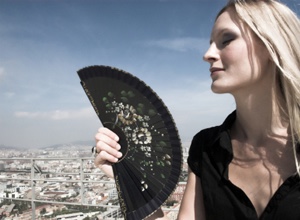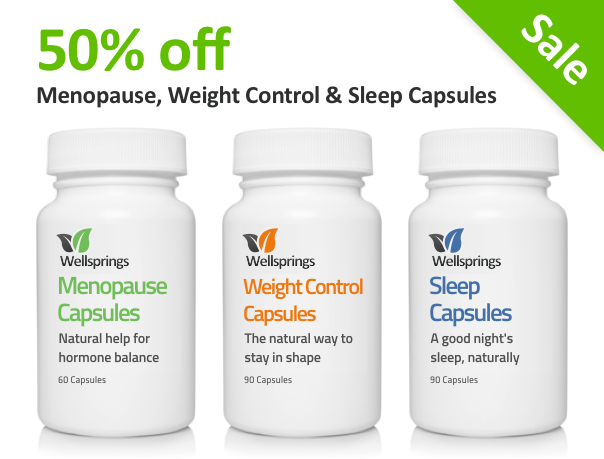What You Most Want To Know About Hot Flushes
Thinking of a peaceful beach and a cooling breeze might help with your flushes, but knowing why they are happening is just as important.

There are two things that most women are concerned about at menopause: the first is weight gain and a close second – if not equal first – are hot flushes.
Why me?
Well why not, as the majority of women do get them, would be a more accurate question. There are a lucky few who never seem to suffer, but for most women some form of flush or more extreme night sweats will be experienced during their menopause process.
As you enter menopause the levels of both progesterone and oestrogen start dropping so imagine it as a kind of rollercoaster where they fall, rise, fall.
It is these surges that are usually responsible for your flushes as the purely physical reason behind them.
Falling oestrogen levels can affect the hypothalamus, and that’s your body’s way of controlling temperature. If that ‘thermostat’ gets disturbed then it reacts and if it thinks you are too hot then you get flushes, or sweats.
The same thing happens in pregnancy when the hormones again are surging, and that’s the first time most women do experience hot flushes, so they are not confined to menopause.
Indeed even if you are post menopause you can still get them, though they are then more likely to be related to anxiety and stress rather than the same hormone surges.
What I also see more often are hot flushes occurring suddenly in women who have come off HRT. If this is done without slow withdrawal, and supported by bioidentical hormones, then the previously high levels of hormone the body has become used to suddenly crash.
Such flushes can be severe and that is why it is always best to seek advice and come off HRT slowly and with guidance.
The emotional journey of menopause
So clearly your body is responding and reacting, but what is also happening is that your whole nervous system is affected and that can also be a trigger for flushes and sweats.
Anxiety and stress can trigger a chemical response which includes adrenaline, and that can then trigger a hot flush or two.
If your adrenal glands have been under pressure from stress then that too will increase the likelihood of more flushes.
However menopause can also be an emotionally challenging time. Your relationship with your partner may be changing, your libido can be in decline or its just plain uncomfortable to have sex so that needs to be addressed.
If you have always had children at home then ’empty nest’ syndrome can be distressing and you may need to find new ways to find fulfilment.
Anxiety and worry do increase with age, and that is stressful, which in itself affects your hormone balance.
It is a time to look at the overall life balance that you have, as being anxious or worried about having a hot flush can almost be guarantee to bring one on.
We tend to dismiss stress if it is not right in front of us, but the effects from say caring for a parent, or having moved house or been widowed or divorced will stay in your body for quite some time after you have experienced them.
How to help yourself
Hormone balance is key, so check for symptoms of oestrogen dominance, stress or adrenal fatigue as well as lowered thyroid function as these will all affect your ability to deal with flushes.
When we are anxious or stressed, then our diet usually is less than perfect. We tend to have the odd drink too many, or reach for sugary, calorie-laden snacks.
Try to follow a healthy nutritious diet and check your levels of essential vitamins such as vitamin C, vitamin D, vitamin B12, and a good multivitamin/mineral complex.
If you are bleeding heavily during menopause then watch out for anaemia as low iron can trigger flushes in sensitive women.
Helpful information:
Hot flushes can usually be helped by progesterone, but if they are severe and also include night sweats you may need a little extra help.
Menopause capsules contain phytoestrogens and can be used alongside Serenity for women who can’t use oestrogen itself, but if you are ok with it then severe symptoms usually respond better to 20-1, which is a combination of bioidentical progesterone and two natural oestrogens with the progesterone being the largest ingredient. You may also want to combine Serenity with Wellsprings bioidentical oestrogen cream so you can adapt the dosage to suit your symptoms.
As stress definitely won’t help your flushes, see if altering your diet might be helpful as well.
https://anna.blog.wellsprings-health.com/how-your-diet-can-help-keep-you-calm/

















